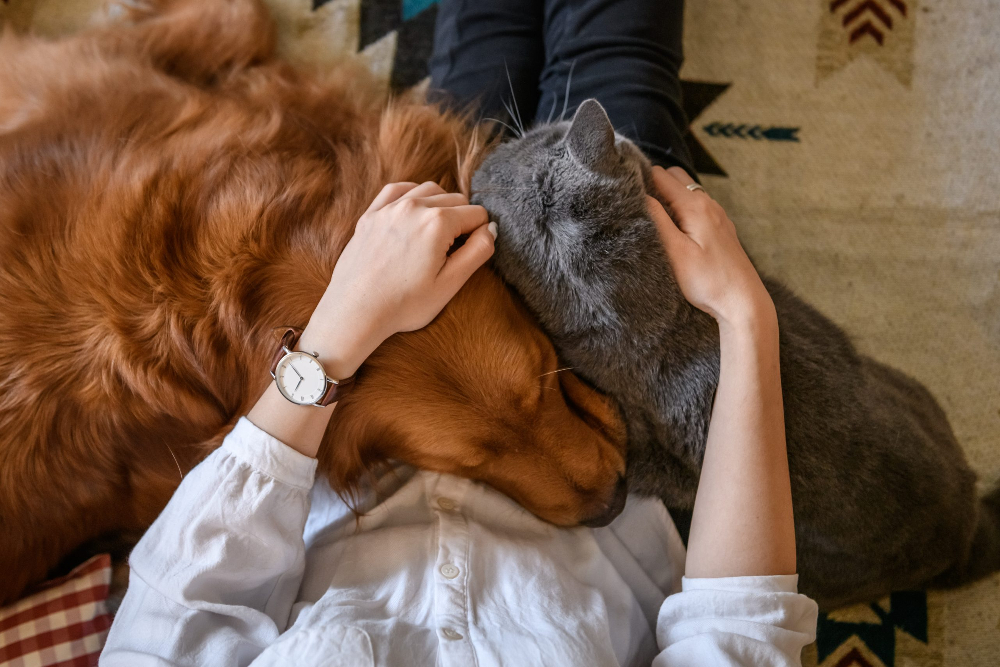In a divorce or separation, determining the custody and visitation arrangements for both children and pets can be a complex and emotional process. While children are typically given special consideration in custody decisions, pets are legally treated as property in the state of Florida. This means that the court will view pets as assets subject to equitable distribution, rather than as family members. However, there are still important factors to consider when it comes to deciding the fate of your beloved pets in a divorce.
The Legal Status of Pets in Florida
Traditionally, pets have been considered personal property in the eyes of the law. This means that, like any other asset, pets are subject to division during the equitable distribution process in a divorce. Florida’s divorce laws do not provide for custody or visitation rights specifically for pets, unlike the guidelines that exist for children. Instead, the court focuses on determining ownership of the pet based on factors such as who primarily cared for the pet, who provided for its needs, and the financial and physical ability of each spouse to care for the pet going forward.
Equitable Distribution and Pet Ownership
In Florida, the division of marital property is governed by the principle of equitable distribution. This means that the court seeks to divide marital assets in a manner that is fair and just, although not necessarily equal. When it comes to pets, the court considers various factors to determine who will be awarded ownership. These factors may include the amount of time and effort each spouse invested in caring for the pet, who took the pet to veterinary appointments, the financial capability of each spouse to care for the pet, and the pet’s overall value. It’s important to note that if one spouse owned the pet prior to the marriage, it may be considered separate property and not subject to equitable distribution.
The Best Interests of the Pet
While the court does not explicitly consider the best interests of the pet in the same way as they do for children, they may take into account factors that indirectly relate to the pet’s well-being. For example, if one spouse has a stronger bond or emotional connection with the pet, the court may consider this when determining ownership. Additionally, the living situation and work schedules of each spouse may also be taken into consideration, as they can impact the pet’s access to care and companionship. Ultimately, the court aims to make a decision that is fair and reasonable, considering the specific circumstances of the case.
Negotiating Pet Custody Agreements
Although the court will ultimately make a decision regarding pet ownership if the parties cannot reach an agreement, negotiating a pet custody arrangement through alternative dispute resolution methods, such as mediation, can provide more control and flexibility to the divorcing spouses. By engaging in open and honest communication, the parties can explore options for shared custody, visitation rights, or other arrangements that prioritize the best interests of the pet. Mediation can help facilitate these discussions and assist in finding a mutually agreeable solution that both parties can accept.
Considering the Children’s Relationship with Pets
In many cases, families have pets that serve as companions and sources of support for children. When deciding the fate of pets in a divorce, the court may take into consideration the relationship between the children and the pets. Maintaining stability and minimizing disruption for the children is a crucial factor in determining pet custody. In some instances, the court may align the custody of the pets with the custody of the children, ensuring that the pets remain with the parent who has primary residential custody. This approach aims to provide emotional support and stability for the children during the divorce process.
The Risks of Court Decisions
It’s important to recognize that court decisions regarding pet custody may not always align with your personal desires or what you believe is best for the pet. Judges may not have a deep understanding of the unique bond between an individual and their pet, and their decisions may be influenced by various factors, including the limited time available for divorce proceedings and the prioritization of other assets and issues. This highlights the importance of presenting a compelling argument and providing evidence of your ability to care for the pet when making your case in court.
Exploring Alternative Options
Given the limitations and risks of court decisions, it is often beneficial to consider alternative options for settling ownership of the family pet. These options can help minimize conflict and provide a more tailored solution for both parties involved. Mediation, for example, can provide a neutral space for spouses to negotiate and create a mutually agreeable pet custody arrangement. By working together, the divorcing spouses can find a resolution that considers the best interests of the pet and allows for continued involvement and companionship.
Seeking Legal Support
Navigating the complexities of pet custody in a Florida divorce requires guidance from an experienced family law attorney. A knowledgeable attorney can help you understand your rights, negotiate agreements, and advocate for your interests in court if necessary. They can also provide insights into the specific laws and regulations relevant to pet custody in your jurisdiction. By working closely with a skilled attorney, you can ensure that your pet’s well-being is prioritized and that a fair and reasonable resolution is reached.
Divorces involving pets can be emotionally challenging, as they require spouses to make difficult decisions about the future of their beloved animals. While Florida law treats pets as property, divorcing couples have the opportunity to negotiate pet custody arrangements that prioritize the best interests of the pet and provide a sense of fairness for both parties involved. By understanding the legal framework, exploring alternative dispute resolution methods, and seeking the assistance of a skilled family law attorney, divorcing spouses can navigate the complexities of pet custody and ensure a smooth transition for both themselves and their furry companions.
Contact (954-451-0050) Akilah Harris, PLLC for a Consultation!
—
![]()
 Are you going through a divorce or trying to retain custody of your child? Do you need help with Estate Planning? Maybe you need help with something else that involves your family? At Akilah Harris PLLC., we understand that family law cases are uniquely stressful and often take a heavy emotional toll on families. Our family law offices in Pembroke Pines and Fort Lauderdale Flordia offer compassionate and thorough legal counsel to our clients. Consult with us when you need to protect your finances, assets, and time with your child. In these highly personal disputes, you need to rely on an experienced Broward County Attorney who knows how to defend your rights.
Are you going through a divorce or trying to retain custody of your child? Do you need help with Estate Planning? Maybe you need help with something else that involves your family? At Akilah Harris PLLC., we understand that family law cases are uniquely stressful and often take a heavy emotional toll on families. Our family law offices in Pembroke Pines and Fort Lauderdale Flordia offer compassionate and thorough legal counsel to our clients. Consult with us when you need to protect your finances, assets, and time with your child. In these highly personal disputes, you need to rely on an experienced Broward County Attorney who knows how to defend your rights.
